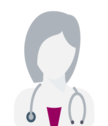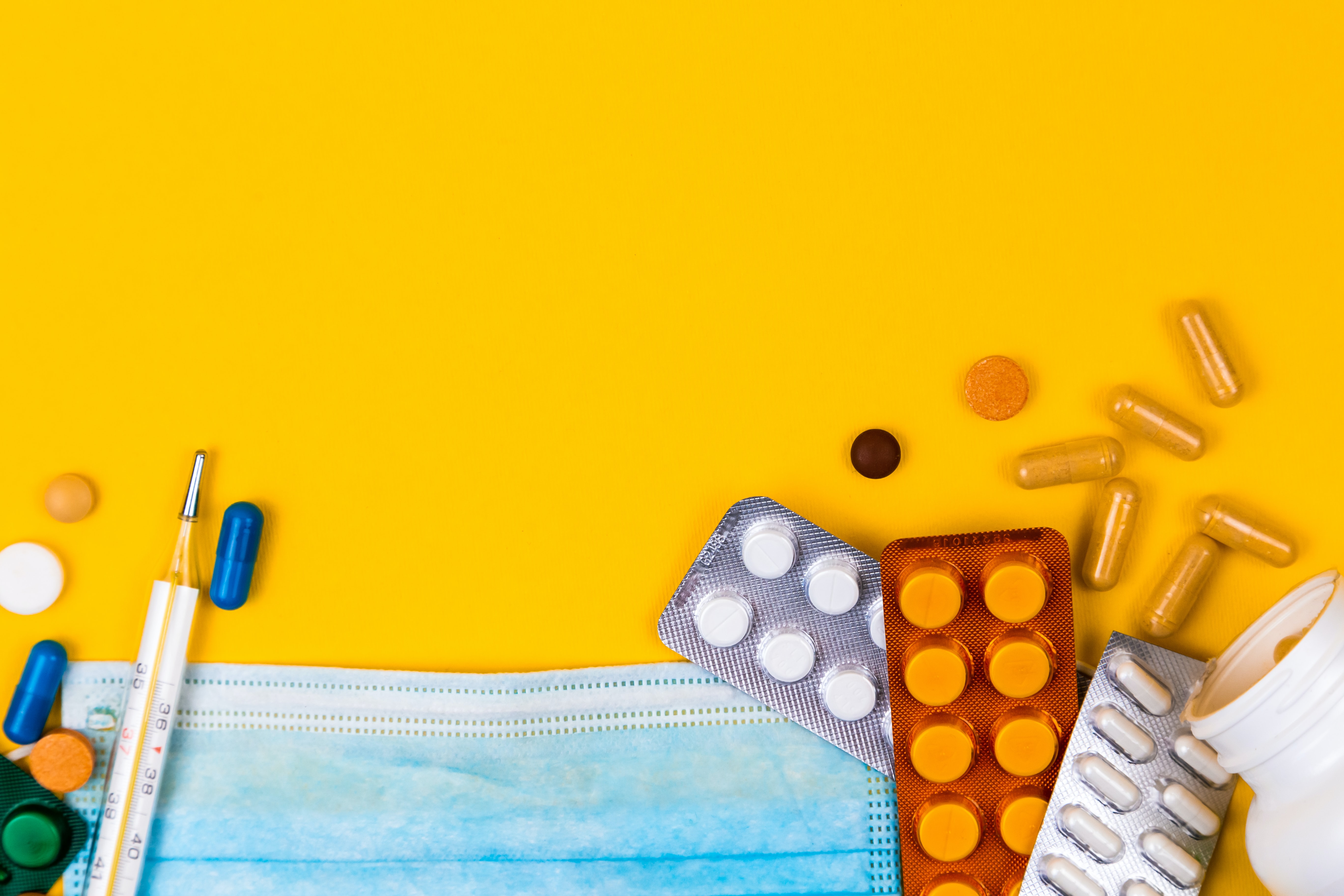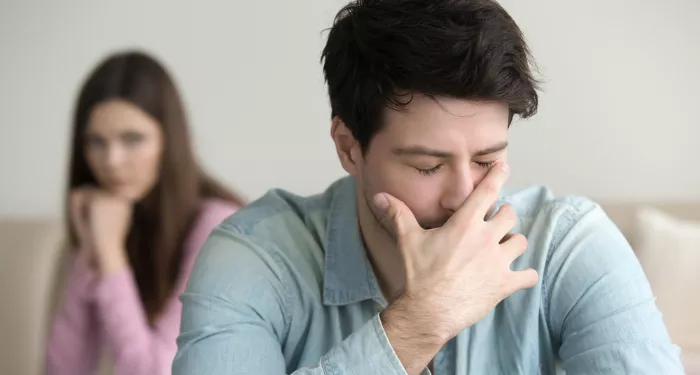(COVID-19) Coronavirus Treatment, Symptoms, Causes & More
Written By: Dr. Salvin George
Updated On:December 20, 2023

What is the Coronavirus?
The coronavirus is a communicable disease caused by the SARS-CoV-2 virus.
The majority of COVID-19 patients go through mild to moderate respiratory illness symptoms & will recover without requiring special treatment. However, the elderly & those with underlying medical conditions such as cardiovascular disease, diabetes, chronic respiratory disease & cancer are at higher risk of developing a serious illness. In terms of protection, the best ways to minimise infection risk to yourself & others is by frequently washing your hands, using a high alcohol content-based sanitiser or rub, & avoiding touching your face with your hands before washing them.
Since the virus’ primary means of transmission is via saliva droplets or nasal discharge from an infected person’s cough or sneeze, it’s important to wear a mask at all times, & cough into your elbow.
Coronavirus Symptoms
While the coronavirus affects people in different ways & has various symptoms, it's important to note that people infected with the virus who show none of the below symptoms at all – referred to as asymptomatic – can still spread it to others. If you have been in contact with a person known to have the coronavirus, or exhibiting its main symptoms, it's important to get yourself tested & self-isolate until you receive your results. The window between infection & appearance of the first coronavirus symptoms varies, but is usually between five & six days – though it has been known to reach 14 in some cases. The majority of the coronavirus-infected population will suffer only moderate or mild symptoms, though the most serious ones require immediate medical attention.
Primary Coronavirus Symptoms May include:
- Fever
- Dry cough
- Tiredness
- Pains or aches
- Sore throat
- Diarrhoea
- Conjunctivitis
- Headache
- Loss of taste or smell
- Rashes on the skin &/or discoloration of the fingers or toes
- Difficulty breathing
- Chest pain or pressure
- Loss of speech or movement
When to see a Doctor for Coronavirus
It's important to immediately seek medical attention if you are suffering from the most serious coronavirus complications & symptoms. Due to this coronavirus's novel nature, we are still learning about how its symptoms affect people in different ways.
You should contact your doctor immediately should you experience any of the following coronavirus symptoms:
- Acute respiratory distress syndrome
- Difficulty breathing or pneumonia
- Chest pain or pressure
- Cardiac issues
- Loss of speech or movement
- Blood clots
Does the Coronavirus Affect Women & Men Differently?
According to several studies conducted through 2020, men tend to contract more severe symptoms of COVID-19 & have a higher mortality rate than women. Although both men & women suffer the same symptoms of coronavirus, data & studies published by sources as wide-ranging as the CDC, the journal Nature Communications & the Yale School of Medicine indicate that despite both genders receiving the same coronavirus treatment, men are more likely to die of the condition. One exception may be India, where a study published in the Journal of Global Health Science indicated that women have a higher relative-risk of COVID-19 mortality.
What are the Different Types of Coronavirus?
There are currently six known types, or species, of human coronavirus. Four – the human coronaviruses OC43, HKU1, 229E & NL63 – produce relatively mild symptoms such as fever, cold or a sore throat. Three (MERS-CoV, SARS-CoV & SARS-CoV-2) produce symptoms of the coronavirus that could be severe, including pneumonia, bronchitis & upper/lower respiratory tract infections. The coronavirus that emerged in Wuhan, China towards the end of 2019 is SARS-CoV-2, which causes COVID-19.
Causes of Coronavirus
COVID-19 is caused by infection with SARS-CoV-2, which spreads easily among humans.
According to the data, the primary vehicle for infection by the virus has been close contact – less than two metres, or six feet – with an infected person. SARS-CoV-2 spreads through respiratory droplets when the infected person breathes or speaks, & more forcefully when they sneeze, laugh, cough, sing or shout.
The infected droplets may enter the body through inhalation, or via the eyes, nose or mouth. Additionally, airborne transmission is a vector for the virus, with studies suggesting small droplets can linger in the air for several minutes or hours, particularly in indoors, unventilated spaces. A secondary means through which the virus can spread is if a person touches their eyes, nose or mouth after their hand has pressed a surface with the virus on it. While uncommon, there have been cases of patients being reinfected with COVID-19.
A quick glance at the leading causes of coronavirus:
- Close contact with a person that’s infected with the coronavirus
- Coming into contact with an infected surface & touching your face afterwards
- Transfer of infected droplets from a person infected with the coronavirus
Known Coronavirus Risk Factors
While the coronavirus's novel nature means research is still being conducted on its risk factors, the disease can affect everyone with a broad range of symptoms, which range from non-existent to mild or even potentially life-threatening. Global health authorities continue to research the full range of risk factors linked to severe coronavirus complications, but here are some that have been discovered so far:
- Age
- Pregnancy
- Certain pre-existing medical conditions
- Living in an overcrowded space
- Gender
- Ethnicity
Coronavirus Complications
While most sufferers will only experience moderate or mild coronavirus symptoms, it can result in severe complications & death for others. Those at higher risk of becoming seriously ill when contracting the virus include the elderly & people with chronic medical conditions like diabetes or obesity.
Complications of COVID-19 can include:
- Difficulty breathing or pneumonia
- Failure of organs
- Cardiac issues
- Acute respiratory distress syndrome, which occurs when your bloodstream isn’t delivering enough oxygen to your organs
- Acute kidney injury
- Blood clots
- Other viral & bacterial infections
Treatment of Coronavirus
For recovery, critically ill coronavirus patients have been given oxygen support, including through ventilators, over the course of the pandemic. As a part of COVID-19 treatment, those suffering mild to moderate symptoms have been asked to self-isolate at home & work remotely where possible. Some coronavirus vaccines are being rolled out across the world. In the UAE, there are currently four approved vaccines being given to residents: Sinopharm, Pfizer-BioNTech, Sputnik V & Oxford-AstraZeneca. All require two doses, delivered from 21 to 28 days apart, depending on the vaccine – though Oxford-AstraZeneca requires a longer gap of at least six weeks. Visit the Ministry of Health website for the latest information on how to get vaccinated in your emirate.
Prevention of Coronavirus
There are a number of steps that can be taken to protect yourself from infection & slow the transmission of COVID-19. The most important ones include sensible precautions when you're out in public such as maintaining social distancing from people who aren't in your household – i.e. immediate family or flatmates – as well as regularly washing your hands with soap & water, applying hand sanitiser, wearing a mask & avoiding socialising in indoor spaces, particularly poorly ventilated ones.
Most governments, including the UAE's, have taken steps to help prevent coronavirus spread through measures such as minimum distances mandated between tables at restaurants & negative PCR test requirements for entry into the country. Working from home is another way you can avoid coming into contact with an infected person.
Here are the best steps you can take to avoid contracting the coronavirus:
- Regularly wash your hands thoroughly using soap & water, & use alcohol-based hand sanitiser & rubs between washings.
- Stay at least six feet away from any individuals you see coughing or sneezing.
- Try not to touch your face.
- Cover your nose & mouth with the inside of your elbow when coughing or sneezing.
- Wear a mask that covers your mouth & nose in public.
- Try to stay home as much as possible, especially if you aren’t feeling well.
- Avoid habits that may harm the lungs, such as smoking.
- Try to avoid crowds, unnecessary travel & socialising with large groups, particularly indoors.
- If your job allows, try to work from home when possible.
If you are experiencing any symptoms that you are concerned may be related to COVID-19, please see a Medcare health specialist immediately.
What if I’ve Tested Positive for Coronavirus?
Most people who test positive for coronavirus will experience mild symptoms at worst, & do not require medical care to recover. However, it’s important to self-isolate; stay home, stay away from others as much as possible – if you do need to interact with them, remain at least six feet away while wearing a mask. If you live with others, try to avoid contact with shared surfaces as much as possible, & be sure to wipe down those that you touch with an alcohol-based solution after. Only seek out medical attention if you are experiencing severe coronavirus symptoms, which are outlined above.
According to the CDC, 30 to 40 per cent of infected patients test positive for up to three weeks after being exposed to the virus.
Here are some isolation protocols & lifestyle practices to follow when you have the coronavirus:
- Try to stay away from other people & even pets. Should you need to interact, remain at least six feet away while wearing a mask for as short a period as possible.
- Avoid smoking – you want your respiratory & immune systems to recover properly.
- Wipe down any surfaces you touch that may be touched by others – it’s a good idea to wear disposable gloves while in areas such as kitchens, for example.
- If you are experiencing a cough or other mild respiratory issues, avoid strenuous exercise.
- Paracetamol can be effective for treating a mild fever.
When I can be Around Others Again after Testing Positive?
According to the US Centers for Disease Control & Prevention (CDC), anyone with mild coronavirus symptoms can end their self-isolation ten days after the symptoms first appeared & if they’ve gone 24 hours without a fever (without taking fever medication). To be safe, go for a PCR test & continue observing isolation protocols until you receive your result. Once you have tested positive, the CDC says you don’t need to retest for the virus for 90 days after your first symptoms appeared.
Should I get the Coronavirus Vaccine if I have Previously Tested Positive?
While it is beneficial to get the vaccine even after you’ve had the coronavirus, it’s important that your immune system is healthy at the time you receive it – & that you do not have the virus at the time you’re receiving the jab. Medical professionals in the UAE & elsewhere will ask you about whether you’re experiencing any symptoms, & you may be asked to take a PCR nose swab test if they suspect you have the virus. Dubai Health Authority recommends patients who have previously tested positive for the coronavirus wait at least three months from their initial date of infection before going in for the vaccine.
What Should I do if I’ve Come into Close Contact with Someone Diagnosed Positive with Coronavirus?
- CDC guidelines recommend quarantining at home for 14 days following close contact with a person diagnosed positive with the coronavirus – unless your contact was at least 28 days after your second vaccine shot.
- Anyone staying home during the quarantine period should adhere to the same self-isolation conditions as a coronavirus patient.
- If you are experiencing any coronavirus symptoms, book a PCR test on the Medcare website in less than one minute.
Are you experiencing symptoms? Get a PCR test in Dubai or Sharjah at our clinics or hospitals, or book a PCR test at home at your comfort.
Meet our doctors from the Internal Medicine department














































